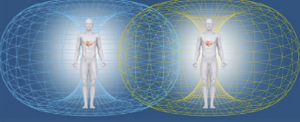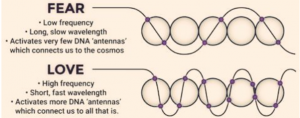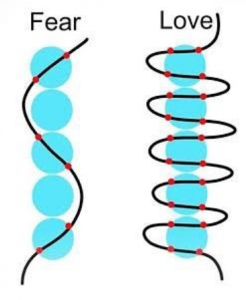Before I started my counselling and psychological training, I considered myself logical, practical and empirical. I thought that I was intellectually compassionate, articulately skilled and communicatively empathic. While that may be true, I later realised that I was ‘mind-identified’ and I am more than my mind.
I used to live in my head, and the majority of my decisions were made from cognitive rationale and intellectualisation. In so doing, I relied on the thinking mode to process, analyse, and make sense of things. I believe that we were conditioned and measured by our intellects, especially in educational establishments such as school, college and universities etc. It is the most tangible method of measurement in modern societies, it seems. But, it goes deeper than that. We were also taught in the family system, perhaps unconsciously. Remember the time when your parents make a comparison of your achievement against your siblings?
However, that may be, I think that the cognitive mind is just one part of the physical body. I believe that our physical body is the vehicle of the spiritual body. Both parts reside unanimously and cooperative as one harmonious dualistic being. Their composites are like the Taijitu duo, the yin and yang.
 As a psycho-spiritual therapist, I believe that the physical body has two ‘minds’; the cognitive-mind and the heart-mind. Therein, the brain is the cognitive-mind, and the heart is the heart-mind. It might help if you think of the brain as the all-knowing ‘supercomputer’. Memories, experiences, and programmings are stored. Thus, the heart is the ‘operator’, the user, the decision-maker. Imagine making your decisions from the heart. Henceforth, I want to discuss the concept of heart-mind further because I believe that this is the primary and the brain is secondary.
As a psycho-spiritual therapist, I believe that the physical body has two ‘minds’; the cognitive-mind and the heart-mind. Therein, the brain is the cognitive-mind, and the heart is the heart-mind. It might help if you think of the brain as the all-knowing ‘supercomputer’. Memories, experiences, and programmings are stored. Thus, the heart is the ‘operator’, the user, the decision-maker. Imagine making your decisions from the heart. Henceforth, I want to discuss the concept of heart-mind further because I believe that this is the primary and the brain is secondary.
Researchers had proved that during the mitosis in the cell division process, after conception, the heart is the first organ to form in utero. As the primary organ, the heart developed a complex circuitry system using bloodstream to obtain nutrients and eliminate wastes to be transported to and from the embryo and the mother for growth. As the embryo develops further, other organs and system formed to complete the human evolutionary process, and the foetus is formed. It is not until after four weeks after conception that the neural tube is connecting the spinal cord to the brain to complete the foetus’ circuitry system. After which, the heart begins to beat. Therefore, the heart is more than a mere ‘pump’. It is from the heart that your emotions are associated.
Although the concept of the heart-mind is not something new to metaphysics, it is less well known generally. When I began my training as the Body Code practitioner, I appreciated energy works and energy from the heart.
 The heart has an energy centre known as the Heart Chakra or Anahata, is located near the heart area. The heart emits energy from the body. The electromagnetic field produced by the heart is more than 60 times greater than the brain. The auric field exerts about 12 feet outwards. The heart is symbolic to love, compassion, kindness, warmth and much more.
The heart has an energy centre known as the Heart Chakra or Anahata, is located near the heart area. The heart emits energy from the body. The electromagnetic field produced by the heart is more than 60 times greater than the brain. The auric field exerts about 12 feet outwards. The heart is symbolic to love, compassion, kindness, warmth and much more.
If we can relate to people from the heart, image what that would be like. If you can find a way to relate to others with the heart, how would you feel?
Personally, for me, this means deep empathy and loving feelings. I am talking about unconditional love, pure love, without any peremptory request or demand. You might want to understand your love language before you carry on reading.
When your heart-mind emits love and compassion, in accordance with the natural order of the universal law, specifically, the law of attraction, love will return to you, as it is received by another. You will notice signs of love in another person’s eye, and you will feel the emotions.
How do you listen to your heart-mind?
- Ask yourself, how do you make decisions?
 If you use your mind to think about making a decision, it is safe to say that you are not as connected to your heart-mind. If you take time to ponder a decision or find it difficult to make up your mind, you are probably mind-identified. Decision-making from the heart-mind often comes from a ‘feeling’ or an intuition. The heart is our source of love, creativity and inspiration. Sometimes, decisions from the heart are illogical, baseless, spontaneous and impulsive.
If you use your mind to think about making a decision, it is safe to say that you are not as connected to your heart-mind. If you take time to ponder a decision or find it difficult to make up your mind, you are probably mind-identified. Decision-making from the heart-mind often comes from a ‘feeling’ or an intuition. The heart is our source of love, creativity and inspiration. Sometimes, decisions from the heart are illogical, baseless, spontaneous and impulsive.
Before completing my MA, I attended a workshop from sheer curiosity. By the end of the day, my mind was made up to participate in the training programme. I’d made my decision based on a feeling. I did not consider how I was going to finance the studies or whether I could afford it. My application went in, and when it got accepted, the realisation of cost, time and commitment came into play.
- Ask yourself, how do you feel about x?
 Place your hand on your heart and literally listens to the harmonious, rhythmic heart beating. It should beat in a gentle rhythm, the soft sounds of the tempo should be melodic and not like an offbeat syncopation. Listen to your gentle, beating heart and notice your senses. Do you feel any tingling, flood of warmth or goosebumps? These are the sensation of energy moving through your body, surging and filling you with good feelings. A loving feeling has the highest frequency, as mentioned in last month’s blog.
Place your hand on your heart and literally listens to the harmonious, rhythmic heart beating. It should beat in a gentle rhythm, the soft sounds of the tempo should be melodic and not like an offbeat syncopation. Listen to your gentle, beating heart and notice your senses. Do you feel any tingling, flood of warmth or goosebumps? These are the sensation of energy moving through your body, surging and filling you with good feelings. A loving feeling has the highest frequency, as mentioned in last month’s blog.
If you have children, you should feel a mother’s love for a child. It is the truest, selfless love. It is often boundless, and there is nothing you would not do for that child. It is non-obsessional, non-sexual, healthy and unconditional. In an ideal world, this is the loving feeling that should experience growing up.
More often than not, our experiences are less than ideal. But, this does not mean that we can’t learn to connect to that unconditional love within. We can learn to love our inner child. However, If you find it challenging to feel unconditional love, perhaps you have a ‘heart wall’. A heart wall is a blockage to the heart. It is a (metaphorical) wall that we put up to defend ourself from heartaches. If you suspect that you have a blockage to the heart and love, you might benefit from emotional code sessions.
- Learn to speak from the heart
 Speaking from the heart will inevitably help. It may seem awkward and strange at first, but you will become more comfortable with practice. Speaking from the heart is not about talking ‘mushy’, over-sentimental or pretentious, but preferably with genuineness and sincerely. Speaking with feeling is speaking from the heart. It is about speaking your truth.
Speaking from the heart will inevitably help. It may seem awkward and strange at first, but you will become more comfortable with practice. Speaking from the heart is not about talking ‘mushy’, over-sentimental or pretentious, but preferably with genuineness and sincerely. Speaking with feeling is speaking from the heart. It is about speaking your truth.
You might find it helpful to name the emotion and how you may feel when you convey it. For example, think of the word ‘nervousness’. As you think about this emotion, consider how it might also be to feel it in the body in response to feeling nervous. You might be nervous when speaking up in a room full of people or in a large group. As think about the things that you make you ‘nervous’, also, say ‘I am nervous about…because…’. In our example, you might say, ‘I am nervous about speaking up in a large group full of people’.
Say this a few times until you can really feel the emotion and feeling nervous. In your inner body, you might hear your voice becoming shaky, trembling a little bit. In your outer body, you might start to feel the bead of sweat running down your back and becoming flush or hot.
Have fun with the experience and try using other emotion and feel different intensity which different feeling convey. When you can elicit a sentiment of your words, you’d have mastered ‘speaking’ from the heart. Well done!
- Use the I/Thou language
 When you speak to others, notice your language, the word you use and in what context. If you can relate to others from an adult to adult, not from an adult to a child or a parent, you are halfway to using the I/thou language. This concept simply means speaking to someone compassionately while taking responsibility for your feeling, words, and language. Here is an example of an I/though language:
When you speak to others, notice your language, the word you use and in what context. If you can relate to others from an adult to adult, not from an adult to a child or a parent, you are halfway to using the I/thou language. This concept simply means speaking to someone compassionately while taking responsibility for your feeling, words, and language. Here is an example of an I/though language:
I – When you shout, I find it difficult to understand you fully, and it hurts my feelings.
Thou – Although, you are shouting at me, and blaming me. I strongly object, and I do not take it personally. But I also feel angry and hurt at the way I am treated by you.
I know it is challenging in a situation when you are at the receiving end of a barrage of emotional attack. Suppose you can address the problem objectively, without taking it personally. In that case, it is the best way to get your point across.
- Watch your conscious and unconscious thoughts
 This is probably the most important tip. Believe it or not, but your thoughts are being heard by others. Even if you never speak it, what you think about consciously is being received ‘telepathically’ by the other person. We unconsciously broadcast the ‘unspoken’ conscious thoughts into our energetic field.
This is probably the most important tip. Believe it or not, but your thoughts are being heard by others. Even if you never speak it, what you think about consciously is being received ‘telepathically’ by the other person. We unconsciously broadcast the ‘unspoken’ conscious thoughts into our energetic field.
Have you ever wonder why a bully picks on someone? It is because they are attuned to receiving the negative self-abuse from others. Suppose you consciously think about being hurt by others, feeling insecure and unsafe with another. In that case, you are sending out negative broadcasts. This could also be conveyed in your body language and body posture.
Negative broadcasts are something that I am aware of. Still, I was unaware that even though I thought of myself as altruistic, I was broadcasting, ‘I am unimportant’, and ‘I am not safe’. These vibrational frequencies were stuck within the body, which I had to eliminate through energy clearing.
Now that you have an awareness that our conscious and unconscious thoughts impede speaking from the heart – watch what you think. As the messages are broadcast, like a radio tower. Your heart cannot communicate soulfully.
I hope that this blog has been helpful, and if you would like more details about energy work or energy healing, please contact me for more information.
If you would like a personal experience of an energy healing session, please visit Energy Works for more details.
“Thinking about love is not the same as having loving feeling. Thinking about love is an idealisation. But, feeling love is unconditionally so powerful that no word is necessary.” – Patch Welling.
Do you find this blog helpful? If you like this post, I love to hear from you on my Twitter Page.




 Growing up with traditional Buddhist practices, I often thought that attending the temple for prayer was tedious. However, as I sat through the Thai Buddhist monks chanting, I instantly felt mentally relaxed, peaceful and calmed. The melodic sounds of the chant were mesmerising.
Growing up with traditional Buddhist practices, I often thought that attending the temple for prayer was tedious. However, as I sat through the Thai Buddhist monks chanting, I instantly felt mentally relaxed, peaceful and calmed. The melodic sounds of the chant were mesmerising. Love, for example, has a high frequency around 500Hz, whereas, fear has a low frequency at 100Hz. When you feel love for yourself or others, you cannot and will not feel the fear. Thus, it is worth choosing a positive feeling or emotion, which is better for health and wellness.
Love, for example, has a high frequency around 500Hz, whereas, fear has a low frequency at 100Hz. When you feel love for yourself or others, you cannot and will not feel the fear. Thus, it is worth choosing a positive feeling or emotion, which is better for health and wellness. Being open-minded is a willingness to consider new ideas or concepts without prejudices. An open-minded person will have the ability to considered other perspective, can be empathetic, to others, even if you disagree. In this state, you are flexible in your approach to learning and accepting new options, opportunities, suggestions, and inspirations. With an open mind, you will see things start to manifest, as you become receptive, you will attract like for like.
Being open-minded is a willingness to consider new ideas or concepts without prejudices. An open-minded person will have the ability to considered other perspective, can be empathetic, to others, even if you disagree. In this state, you are flexible in your approach to learning and accepting new options, opportunities, suggestions, and inspirations. With an open mind, you will see things start to manifest, as you become receptive, you will attract like for like. Love has high frequencies which are beneficial to instantly lift your moods and emotional frequencies. When you feel love and appreciation, negative or low frequencies cannot exist at the same moment. If you find it difficult to ‘feel love’ trying doing something that you truly love. A loving feeling is a feeling of immense happiness, joy, connection, fulfilment, fondness, warmth, and tenderness. It is a blissful feeling towards someone or something. A true loving feeling is unconditional and unbounded. For me personally, I love water, nature and the sounds of a Wren singing in the distant, as I bathed in the warm sunny sky. You get the picture.
Love has high frequencies which are beneficial to instantly lift your moods and emotional frequencies. When you feel love and appreciation, negative or low frequencies cannot exist at the same moment. If you find it difficult to ‘feel love’ trying doing something that you truly love. A loving feeling is a feeling of immense happiness, joy, connection, fulfilment, fondness, warmth, and tenderness. It is a blissful feeling towards someone or something. A true loving feeling is unconditional and unbounded. For me personally, I love water, nature and the sounds of a Wren singing in the distant, as I bathed in the warm sunny sky. You get the picture. Gratitude has high frequencies also, which can instantly transcend your emotions. It can instantly lift your low moods to a good mood. But, you have to really believe and be grateful. There has to be an element of humbleness within this process in order to feel thankful for something. For example, showing appreciation for your good health, being appreciative of your partner, be thankful to your family and friends by simply saying it out loud. I feel grateful for my good health. I feel grateful to my partner for his love and support. I feel grateful for my family. If you find it hard to say that you are grateful to the person, say it in your mind – they will receive the feeling all the same. Make a list of the things that make you grateful.
Gratitude has high frequencies also, which can instantly transcend your emotions. It can instantly lift your low moods to a good mood. But, you have to really believe and be grateful. There has to be an element of humbleness within this process in order to feel thankful for something. For example, showing appreciation for your good health, being appreciative of your partner, be thankful to your family and friends by simply saying it out loud. I feel grateful for my good health. I feel grateful to my partner for his love and support. I feel grateful for my family. If you find it hard to say that you are grateful to the person, say it in your mind – they will receive the feeling all the same. Make a list of the things that make you grateful. You can build a mantra, an affirmation or prayer into your daily life that includes feeling love for yourself and others. A mantra can be something that you repeat during meditations, walking, exercising or when doing a mundane task. An affirmation is a statement that you keep repeating until it becomes second nature. A prayer can be anything that you say with closed eyes to God, The Higher Power, Holy Spirit or the Universe.
You can build a mantra, an affirmation or prayer into your daily life that includes feeling love for yourself and others. A mantra can be something that you repeat during meditations, walking, exercising or when doing a mundane task. An affirmation is a statement that you keep repeating until it becomes second nature. A prayer can be anything that you say with closed eyes to God, The Higher Power, Holy Spirit or the Universe. Laughing is potent and instantly uplifting. It has many
Laughing is potent and instantly uplifting. It has many 




 It often helps to name our emotions. This is because emotion has an
It often helps to name our emotions. This is because emotion has an  Qualities of compassion promote positive emotional response and mindset; however, it should not be compared to empathy. Compassion is a deep feeling for oneself and another person, whereas empathy is the ability to be alongside the other person, or in their shoes. The emotional response when perceiving suffering in oneself or another triggers an authentic desire and wishes to take action, to assist, to alleviate and to help – but not to eliminate or deny.
Qualities of compassion promote positive emotional response and mindset; however, it should not be compared to empathy. Compassion is a deep feeling for oneself and another person, whereas empathy is the ability to be alongside the other person, or in their shoes. The emotional response when perceiving suffering in oneself or another triggers an authentic desire and wishes to take action, to assist, to alleviate and to help – but not to eliminate or deny. I want to discuss the concept of masking in Psychology further.
I want to discuss the concept of masking in Psychology further. Fear not, I can offer some helpful tips to those individuals who’d like to remove their (psychological) masks – but keep the COVID-19 cover on (for now). Here’s how:
Fear not, I can offer some helpful tips to those individuals who’d like to remove their (psychological) masks – but keep the COVID-19 cover on (for now). Here’s how:
 1. A good enough reasoning.
1. A good enough reasoning. 2. Soothing sounds of the opposite.
2. Soothing sounds of the opposite. 3. Rebelling against helplessness.
3. Rebelling against helplessness.  4. Rethink the mundane.
4. Rethink the mundane. 5. Lack of motivation by attachment.
5. Lack of motivation by attachment.